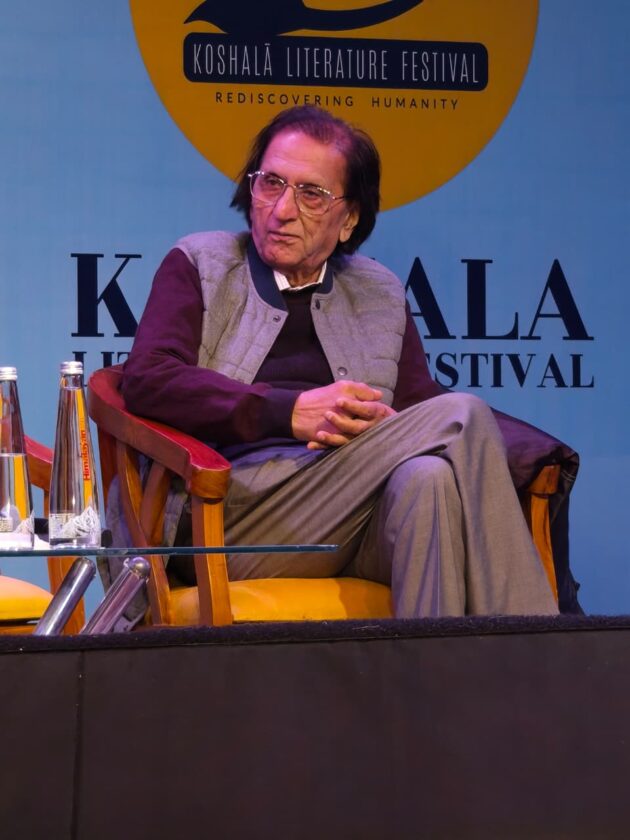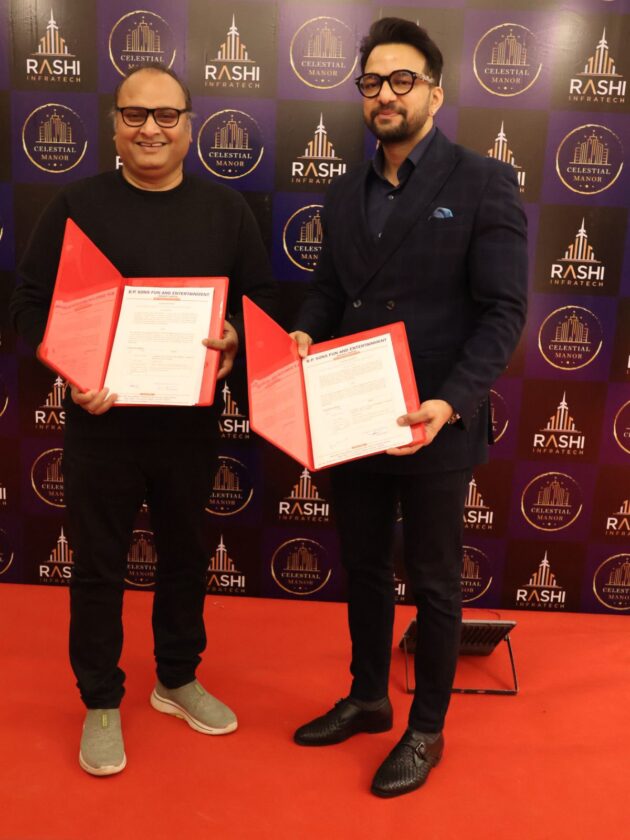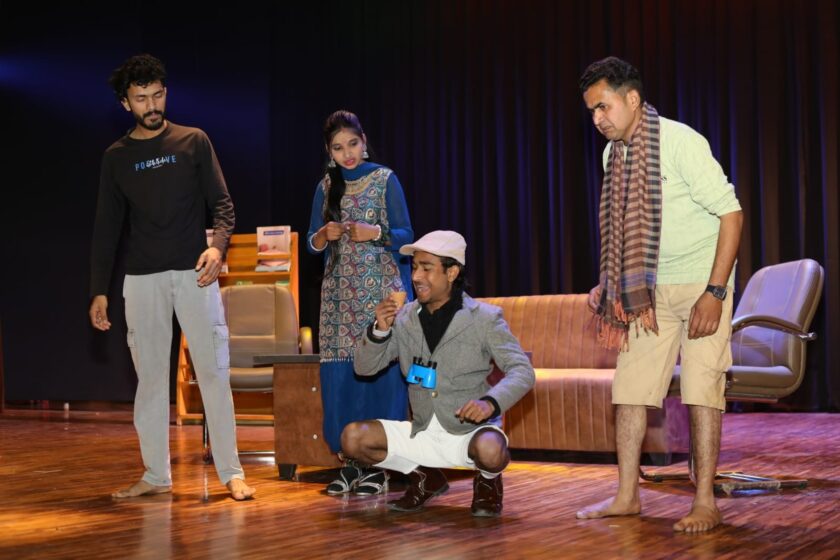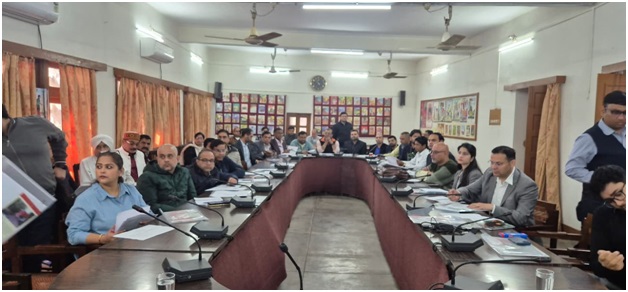Lucknow — The second day of the fourth edition of the Koshala Literature Festival at UP Darshan Park dazzled audiences with its rich blend of intellectually charged dialogues, poetic recitals, cultural explorations, and contemporary conversations. From discussions on media ethics and regional identity to women-centric literature and mythological reinterpretations, the day stood as a testament to Lucknow’s unmatched cultural depth and evolving creative spirit.
SESSION 1: “Lucknow ka Mediyappa” – The Changing Face of Indian Media
The day began with a dynamic session titled “Lucknow ka Mediyappa,” featuring respected media professionals Meenu Khare, Ranvir Singh, Arshana Azmat, and moderator Prateek Bharadwaj.
The panel traced the transformation of journalism across radio, television, print, and digital platforms, reflecting on emerging challenges such as credibility crises, ethics in reporting, and the need for balanced storytelling.
A major highlight of the discussion was the panel’s collective stance on Artificial Intelligence in media. All three speakers asserted that while AI can assist with research and speed, it can never replace the human emotional compass, intuition, and contextual understanding necessary for responsible journalism.
SESSION 2: Cultural Insights from Riddhi Gaur, Nawab Masood Abdullah, Ashutosh Dikshit, and Naval Kant Sinha
The second session brought together Riddhi Gaur, Nawab Masood Abdullah, Ashutosh Dikshit, and Naval Kant Dikshit, who explored the intricate weave of Lucknow’s cultural identity.
Abdullah’s presentation on the heritage of paan culture stood out. He explained traditional etiquettes such as serving paan in a Khazdan and disposing of it in an Ugaaldan, symbolizing the refinement embedded in Lucknow’s etiquette. He also touched upon the Iranian influences in Awadhi cuisine, emphasizing its use of finely ground aromatic spices.
Gaur shed light on the cultural significance of Raja ki Thandai in Chowk and revealed a little-known fact: a pocket of Chowk is affectionately known as Chhoti Kashi, due to the presence of Shiva lingams and ancient wells in nearly every household.
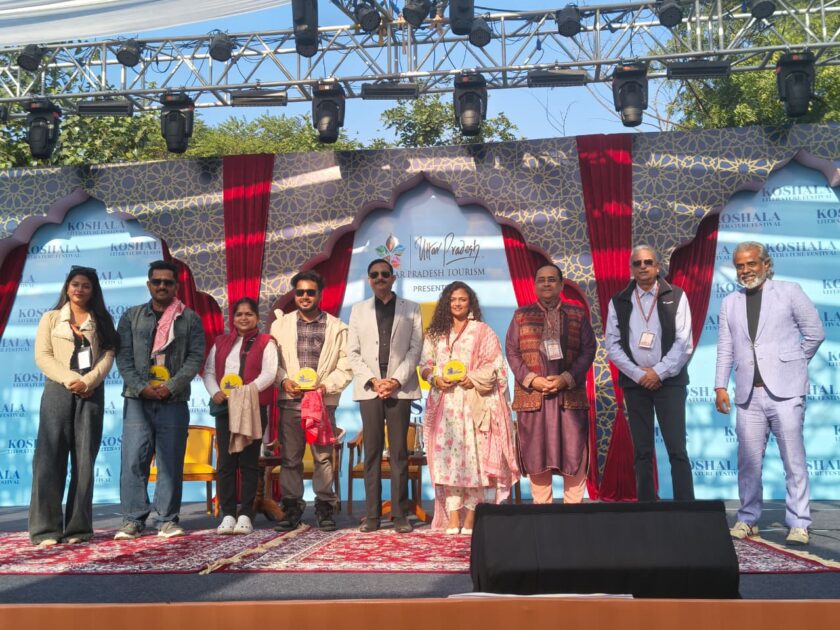
SESSION 3: “Reel Wala Lucknow” – Influencers Share Their Journeys
A youth-driven session titled “Reel Wala Lucknow”, moderated by RJ Prateek, brought digital creators Saubhagya Dixit, Akanksha Awasthi, and Saurabh Chandra into the spotlight.
- Saubhagya Dixit discussed navigating trolling and emotional fatigue while working to popularize the Awadhi language at a national level.
- Akanksha Awasthi explained her decision to focus on Lucknow’s street food rather than high-end restaurants, believing local flavours define the city’s true gastronomic identity.
- Saurabh Chandra emphasized steering clear of derogatory content and urged creators to ignore negativity to maintain creative clarity.
The engaging exchange offered guidance and motivation to young content creators aspiring to build authentic digital careers.
SESSION 4 & 5: Poetry, Heritage, and the Spirit of Lucknow
The fifth session brought together poet-performer Monia Aljlais, Urdu scholar Abbas Raza Nayyar, and motivational speaker Chandra Shekhar Varma.
Nayyar and Varma painted an evocative portrait of Lucknow—not just as a physical space, but as an emotion, a fragrance, a philosophy. Through ghazals and shayari, they described the city as a place where:
- Ittar scents linger in the air,
- adab and tehzeeb shape daily interactions,
- and every lane echoes centuries of artistic heritage.
Their verses reminded the audience of Lucknow’s identity as a cultural tapestry woven with poetry, memory, and refined etiquette.

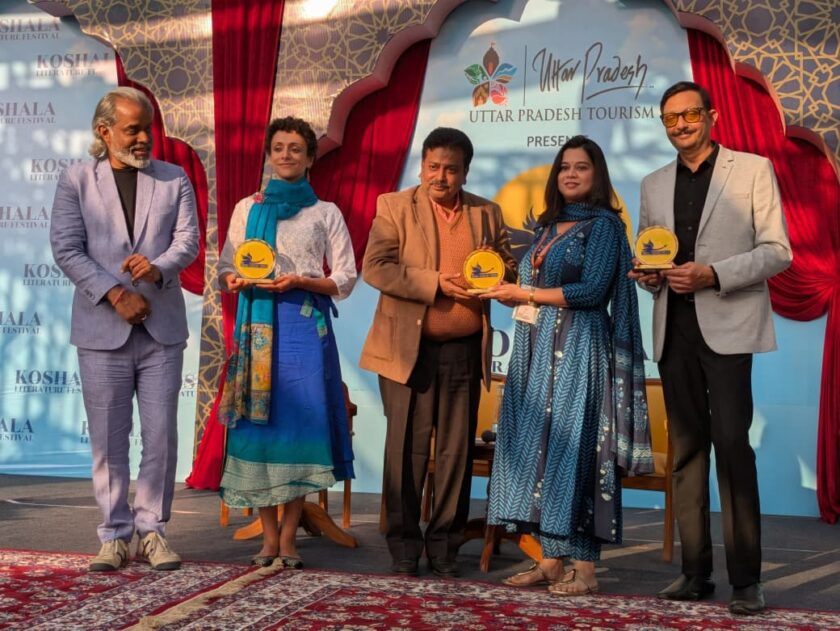
SESSION 6: “Trindhari Sita: Sita’s Veil” – Reclaiming Feminine Narratives
In one of the most emotionally impactful sessions of the day, acclaimed writer Anamika, translator Nishtha Gautam, and moderator Chandra Shekhar Verma discussed Trindhari Sita.
Anamika offered a refreshing interpretation: Sita not as a symbol of suffering but as a joyful, self-reliant woman and a nurturing mother raising Luv and Kush with wisdom and tenderness.
She emphasized the writer’s role as a listener of emotions, preserving them for future generations.
Gautam spoke about the art of translation, describing it as the transmission of sentiment, not merely a linguistic transformation. She highlighted her commitment to retaining the soul of Anamika’s text despite challenges posed by region-specific idioms and cultural nuances.
Verma beautifully summarized the partnership by saying that Anamika and Gautam resembled Devaki and Yashoda—one who birthed the text and the other who raised it in a new form.
SESSION 7: “Threads of Grace: Women Shaping Worlds with Words”
Moderated by Ashwitha Jaykumar, this conversation between authors Monia Aljlais and Anindita Ghose delved into women’s writing across themes of identity, grief, resilience, and emotional liberation.
- Anindita Ghose, discussing her novel The Illuminated, reflected on stories shaped by political tensions and personal grief, reaffirming her commitment to ensuring women’s voices are represented with honesty and power.
- Monia Aljlais, author of Love in the Times of Political Climate, spoke about poetry as a form of resistance and self-assertion, rooted in her cultural and spiritual struggles.
Both authors emphasized how women reclaim memory, challenge patriarchal norms, and weave new worlds through literature.
SESSION 8: “The Other Side of the Epic: Women Who Endured, Women Who Defied”
The final session brought together renowned cultural historian Dr. Alka Pande, author Anuja Chandramouli, and writer Koral Dasgupta, moderated by Arsh Ali Chandel.
The session opened with Kalidasa’s Mangalacharan from Abhigyan Shakuntalam, setting the tone for an exploration of mythology through feminist lenses.
Key insights:
- Dr. Alka Pande introduced Itihasology, highlighting how epics like the Ramayana and Mahabharata exist across hundreds of versions, shaped by faith rather than fixed chronology.
- Anuja Chandramouli described epics as “living organisms”, evolving with each retelling.
- Koral Dasgupta examined fluid moralities within epics, challenging conventional dichotomies of heroes and villains.
The conversation highlighted forgotten characters—women who endured, resisted, and reshaped narratives from behind the scenes.
A Festival That Reflects Lucknow’s Soul
Day 2 of the Koshala Literature Festival showcased the city’s mesmerizing blend of:
- intellectual vibrancy,
- poetic legacy,
- cultural richness, and
- contemporary creative expression.
From media debates to mythological reinterpretations, from street-food storytelling to feminist literary explorations, the festival reaffirmed Lucknow’s status as a living archive of art, grace, and literary imagination.








